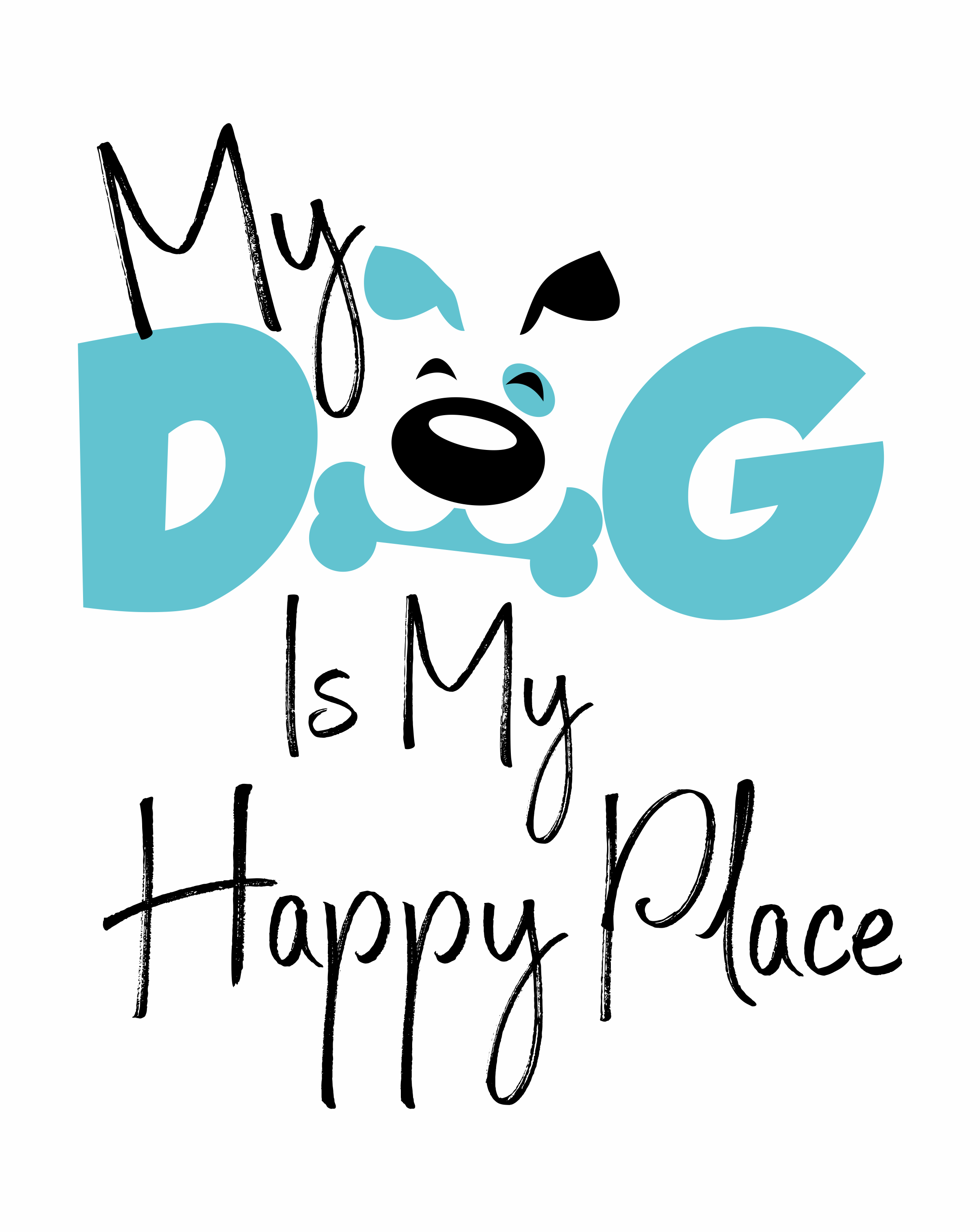When Should You Call Animal Control On Your Neighbor?
Every day, Animal Control officers around the United States respond to reports of animal cruelty. The horrific stories of neglect and outright abuse are too many to count, and already overcrowded animal shelters continue to juggle resources to try to accommodate the thousands of pets seized by Animal Control.
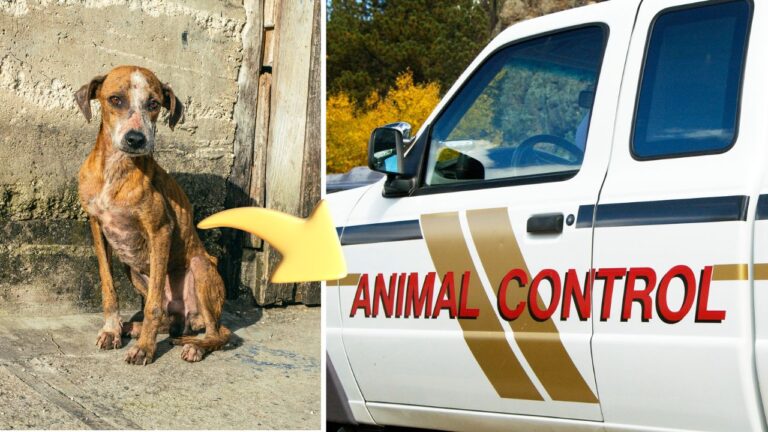
Each year there are innumerable news reports of heinous crimes against animals that many of us could never possibly imagine, and the people involved aren’t always who you would expect. On the outside, many animal abusers appear to be animal lovers and often own many pets, but their apparent devotion to animals is rarely enough to hide them from the watchful eyes of an animal-loving community.
In July of 2023, a group of concerned citizens contacted Animal Control San Diego to report their neighbor for neglect and animal abuse. The Vargas family had lived in Lomita Village for more than 20 years, but their neighbors had grown concerned in recent years as they watched the family collect more and more animals all while their home fell into disrepair.

“The smells of 27 dogs are strong. They do not clean up after them. The dogs live in their own feces. We cannot have guests over because of the flies, the fleas and the smells. It’s just not okay. The dogs howling at 3 o’clock in the morning. We have to work and we’ve gotten 2-3 hours of sleep because the dogs bark and howl,” said a neighbor of the Vargas family in an interview with CBS8 San Diego. “I’m concerned about animals. People have a voice. The animals don’t have a voice,” said another neighbor.
While San Diego Animal Control and the local humane society say the investigation is still ongoing into the Vargas case, a brighter future is in store for the dozens of neglected dogs and cats thanks to their brave neighbors. Knowing how and when to call Animal Control on a neighbor can save the lives of pets in your community—here’s how.
What Does Animal Control Do?
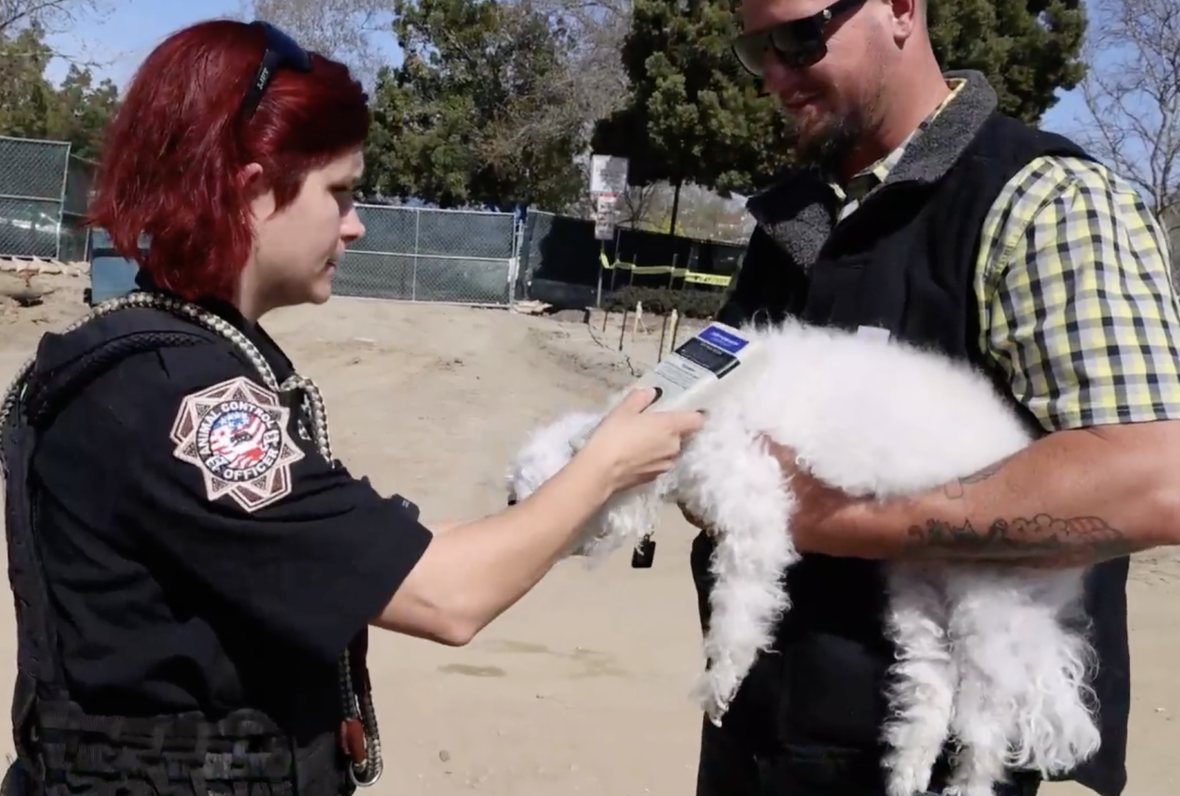
If you’ve never personally encountered or worked with local Animal Control, you might think that the majority of their work involves injured wildlife, animal bites, and removing/relocating pests and dangerous animals like snakes, alligators, etc. While it is true that Animal Control works closely with wildlife rehabilitators and they certainly will respond to a call about a dangerous animal, that’s not the full story.
Many Animal Control officers get into their line of work because they are passionate about preventing and ending cruelty to animals. When someone calls to report animal cruelty, animal control is on the front lines and will swoop in to perform an Animal Control welfare check. This involves an officer visiting the property, looking for any indications of animal cruelty, and possibly speaking with the property owners.
If Animal Control discovers that there is a case of animal cruelty in progress they will collect evidence and obtain a warrant before returning to the property for a formal search and seizure.
Some city and county animal services are solely animal control officers who are called in to intervene, save, and relocate animals to local wildlife rehabs and local animal shelters. Other local animal control services—usually called Animal Care and Control—provide both the intervention and rescue services and run an animal rescue where they house and care for the animals they seize.
Often, adopting a pet from your local Animal Care and Control is far less expensive than adopting from a private rescue, and some have semi-annual events where they allow community members to adopt dogs and cats for free!
What Situations Are Considered Animal Abuse or Neglect?
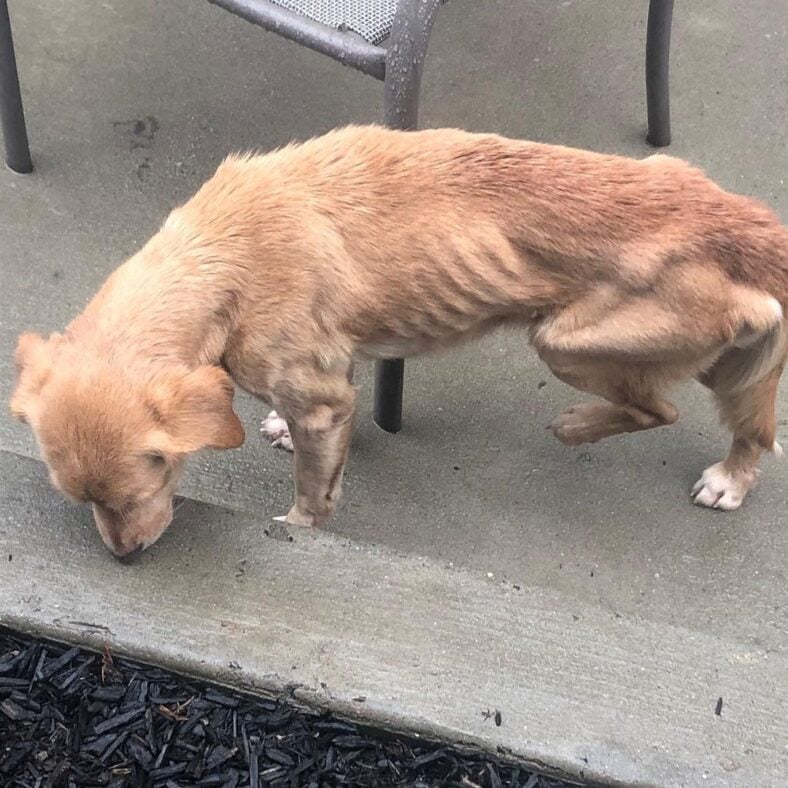
It’s important to be sure there’s an issue when you’re trying to figure out when to call Animal Control on a neighbor. A dog barking for longer than usual once or twice isn’t necessarily a reason to get the local authorities involved. If the reason you are planning to call Animal Control is due to a noise issue, it’s better to start by checking in with your other neighbors to see what they know. It may just be a case of a lonely dog waiting for their humans to come home.
However, if you are certain that what you are seeing/hearing is animal neglect or abuse, there are a few things you do can to prepare before you call Animal Control. Of course, if the abuse is urgent and life-threatening, call 911 immediately.
Let’s go over some of the situations and circumstances that are considered animal abuse or neglect.
Animal Neglect
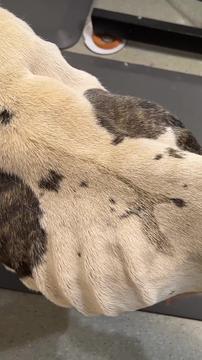
When dogs and cats (or any other animals) are being neglected, their caretakers are not providing them with their basic needs like food, fresh water, safe shelter, clean living environments, and veterinary care.
In some circumstances, animal neglect is simply a matter of undereducation or financial hardship. In both of these cases, the owners can be set up with the right resources to help them learn to take better care of their pets and receive financial assistance for things like veterinary care.
However, some cases of neglect are purposeful and more akin to abuse. Some types of animal neglect that you should report include:
- Hoarding cases typically involve large numbers of dogs and/or cats living under one roof without proper care. These animals may defecate and urinate wherever they find space, lack access to food and water, and rarely if ever see veterinary care. Often these animals are not fixed and therefore multiply.
- Medical neglect like open untreated wounds, chronic cases of fleas, hair loss, limping, and other physical signs of pain or untreated illness should always be reported to Animal Control. (Ambiguous cases of medical neglect—like not giving dogs rabies vaccinations, heartworm medication, etc.—are not as clearly covered by federal or local laws and are rarely reasons to constitute Animal Control intervention.)
- Malnutrition and dehydration can occur quickly without access to food and water particularly in extreme temperatures. If your neighbor’s pets look concerningly thin, appear lethargic, foam at the mouth, or show other signs of malnutrition and dehydration, it’s time to call.
- Tethered or chained dogs should be reported to local authorities if they are left outside alone for long periods, left outside overnight, left outside during extreme temperatures or weather, etc.
- Abandoned pets may also be tethered, dumped outdoors, or even left locked inside abandoned houses.
- Pets left in cars are not always being abandoned, but if the temperature is below 33℉ or above 70℉, it’s time to step in and call 911.
Animal Abuse & Cruelty
Direct animal abuse involves physical attacks and purposeful harm done to an animal. If you witness violence towards an animal it is crucial to act fast. Please call 911 to involve law enforcement immediately.
How To Report Animal Abuse
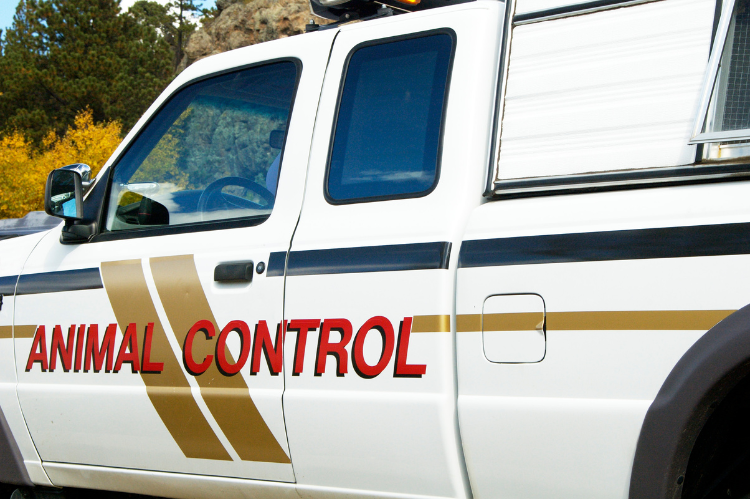
Now that you know what animal neglect and abuse look like, it’s time to learn how to report animal neglect, anonymously or otherwise. It’s important to note that many people don’t report animal cruelty because they simply don’t know how to report animal abuse anonymously and are nervous their neighbors will retaliate. Luckily, it’s as simple as telling the 911 or Animal Control operator that you’d like to remain anonymous when you call to report the abuse.
Call Animal Control or the Police
If you witness animal neglect or abuse, your first move should be to call Animal Control or the police. Please contact Animal Control for cases of neglect that do not require emergency law enforcement intervention, and call 911 if you see direct violence against an animal.
To be safe, we recommend looking up “24-hour Animal Control near me” and writing down the contact information for your local Animal Control in case you ever need to report animal abuse.
You may also be able to report animal cruelty through your municipal Animal Control website. To find out if your area has this resource, try Googling “how to report animal cruelty online in [your city/state].”
Document Evidence
If you begin to notice signs of neglect or abuse before you are ready to call the authorities, be sure to document it. Take photos with your phone, write down incidents as you witness them, and be prepared to share your evidence with Animal Control investigators. Some animal abusers will clean up their act so to speak if they get wind of anyone being suspicious, so it’s good to document the evidence before they have a chance to make deceptive changes.
Take Action If Necessary
In very, very rare circumstances it may be necessary for you to step in and take action. We do not recommend ever putting yourself in harm’s way or confronting a violent person, but if you see a dog in a hot car for example, it’s important to step in. Of course, you should also be familiar with state statutes regarding bystanders and the rights of animals, but once you know the rules don’t hesitate to act.
Know Your Rights as a Bystander
In some states, you are 100% protected against charges of property damage or theft if you break into someone’s car to save an animal from overheating. In other states, you’ll need to leave this up to the professionals and wait for animal control, police, or fire rescue to arrive.
To find out what you can do as a bystander in your state if you find a dog in a hot (or cold) car, check out this comprehensive list of laws that protect animals left in parked cars from Michigan State University.
What is an animal control Officer?
An animal control Officer is a trained professional who is responsible for enforcing animal control laws and regulations in a given area.
When should I call animal control on a neighbor?
You should call animal control on a neighbor if you suspect animal abuse or neglect, if there is a stray or loose animal that could be a danger to itself or others, or if an animal is injured and needs assistance. It’s important to report these issues as soon as you notice them to ensure the safety and welfare of the animals and the community.
Is animal control available 24 hours a day for emergencies?
Yes, many animal control services, including 24-hour animal control near me, operate 24 hours a day to handle emergencies. This ensures that urgent situations involving animals can be addressed at any time.
How do I report animal abuse in Nashville?
In Nashville, you can report animal-related issues by calling the Metro Animal Care and Control at (615) 862-7928. This service is available 24 hours a day for emergencies. For non-emergencies and general information, you can visit their website for more contact options and information. website: Metro Animal Care and Control
What is the contact number for 24-hour animal control in NYC?
For 24-hour animal control services in New York City, you can contact the NYC Animal Care Center at (212) 788-4000 for emergencies. For cases of animal abuse, you may also contact the ASPCA at (877) THE-ASPCA or (877) 843-2772. Their websites also provide additional resources for reporting and information. NYC Animal Care Center
For reporting animal abuse specifically, you can visit the ASPCA’s website: ASPCA – Report Animal Cruelty
How can I reach animal control in Wichita, KS?
Wichita Animal Control can be reached at (316) 350-3360. This number can be used for both emergency and non-emergency situations. For additional resources or to report an issue online, you can visit the Wichita Animal Control website.
In Wichita, Kansas, you can find information and contact details on the Wichita Animal Control website: Wichita Animal Control
What is the hotline for reporting animal abuse in New Jersey?
In New Jersey, you can report animal abuse by contacting the New Jersey Society for the Prevention of Cruelty to Animals (NJSPCA) at (800) 582-5979 or by visiting their website to submit a report. Local animal control contact numbers may vary by county, so it’s best to search for your specific locality’s animal control contact information.
For New Jersey, the NJSPCA has been dissolved, and animal cruelty is now handled by county prosecutors. You would need to contact your local police department or county prosecutor’s office. However, for general animal control services, you can look up local services by county. Here’s an example for the New Jersey Department of Health’s animal welfare page which may provide further guidance: New Jersey Department of Health – Animal Welfare
Where can I find the contact information for animal control in San Diego?
For animal control services in San Diego, you can call the San Diego Humane Society, which provides law enforcement services, at (619) 299-7012. They are available 24 hours a day for emergencies. You can also visit the San Diego Humane Society’s website for more information and to report issues online. Their website offers a wealth of resources: San Diego Humane Society



